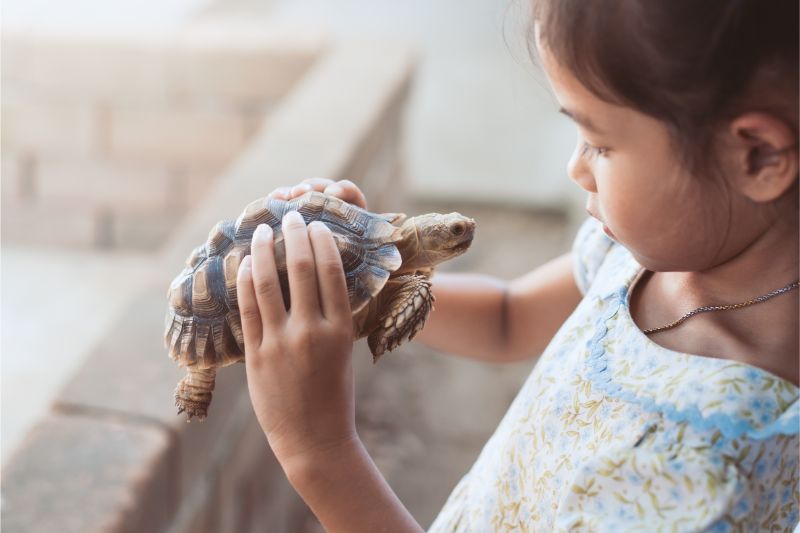
There are many wonderful things about owning a reptile or other exotic species as a pet, and Shiloh Veterinary Hospital knows this more than any other. Caring for these special animals does come some extra responsibility, however. From having an intricate understanding of their dietary needs to supplying the right amount of environmental stimulation, exotic pet ownership doesn’t come lightly.
Understanding the risk of Salmonella in reptiles and exotics is also an essential part of enjoying your pet. No one wants to get sick, and Salmonella is a very real problem.
Scary Salmonella
Salmonella is a family of bacteria that is common in our world. You can find Salmonella in the intestines of many species of animals, including humans.
Most types of Salmonella are not dangerous. Some, however, can result in an infection called salmonellosis. People affected by salmonellosis can have a fever, stomach cramping, and serious diarrhea.
Most people with a Salmonella infection recover in about a week without serious issues. Some, however, can become seriously ill. Very young people, older people, and immunocompromised people are at higher risk of very dangerous illness.
Many animals carry Salmonella and may shed it in large numbers in the feces. This occurs in particular when they are stressed or affected by other illnesses. Humans often become exposed to the bacteria while handling their pets or items that the pets utilize.
The Risk of Salmonella in Reptiles and Exotics
Salmonella is often part of the normal flora in healthy reptiles and amphibians such as turtles, snakes, lizards, frogs, and salamanders. Many carry and shed this organism all the time without issue. Even though it isn’t a problem for them, it can mean big trouble for us.
When it comes to Salmonella in reptiles and exotics:
- Consider a different pet if you have children under five or immunocompromised individuals in your home.
- Wash your hands each time you handle your pet or touch any part of their equipment or habitat.
- Supervise small children around your pet.
- Do not keep your pet or their items in areas that food is prepared.
- Do not keep reptiles or amphibians in children’s rooms.
- Reptiles and amphibians should not have free range of your home.
- Clean your pet’s habitat, bowls, and other items outside of your home using dedicated equipment and away from gardens or drinking water. Consider using gloves.
- As tempting as it may be, avoid snuggling with and kissing your scaly pal.
- Do not keep turtles with shell lengths of less than four inches as they have a higher incidence of carrying Salmonella.
- Let us examine your exotic pet regularly to be sure it is healthy and so that we can help you provide the best care.
Salmonella is no reason to not enjoy your reptile or exotic pet. Taking a few extra precautions will help to keep you and your family safe, though. As always, please reach out to us if you have any questions or concerns about your pet and its care.
